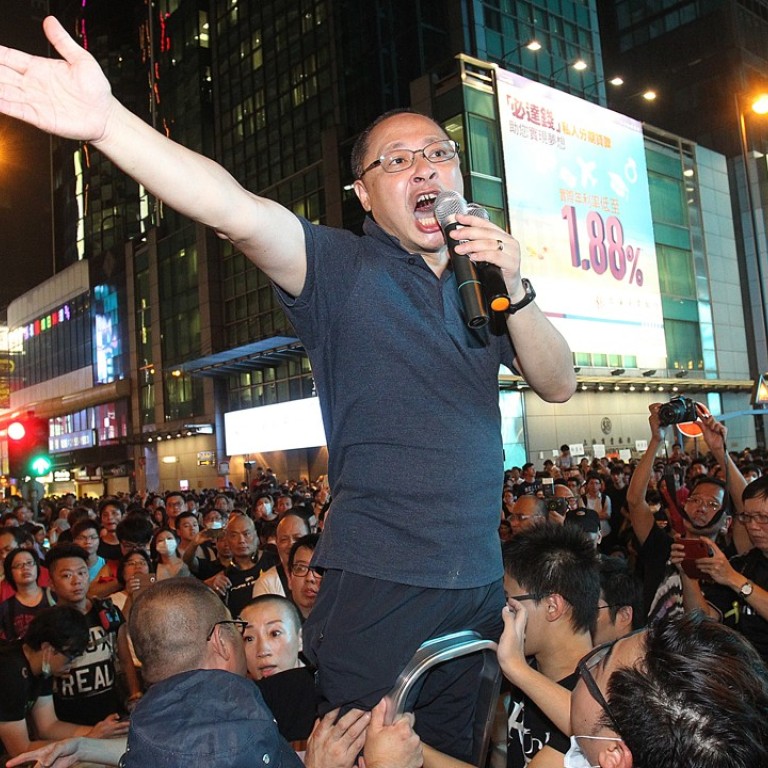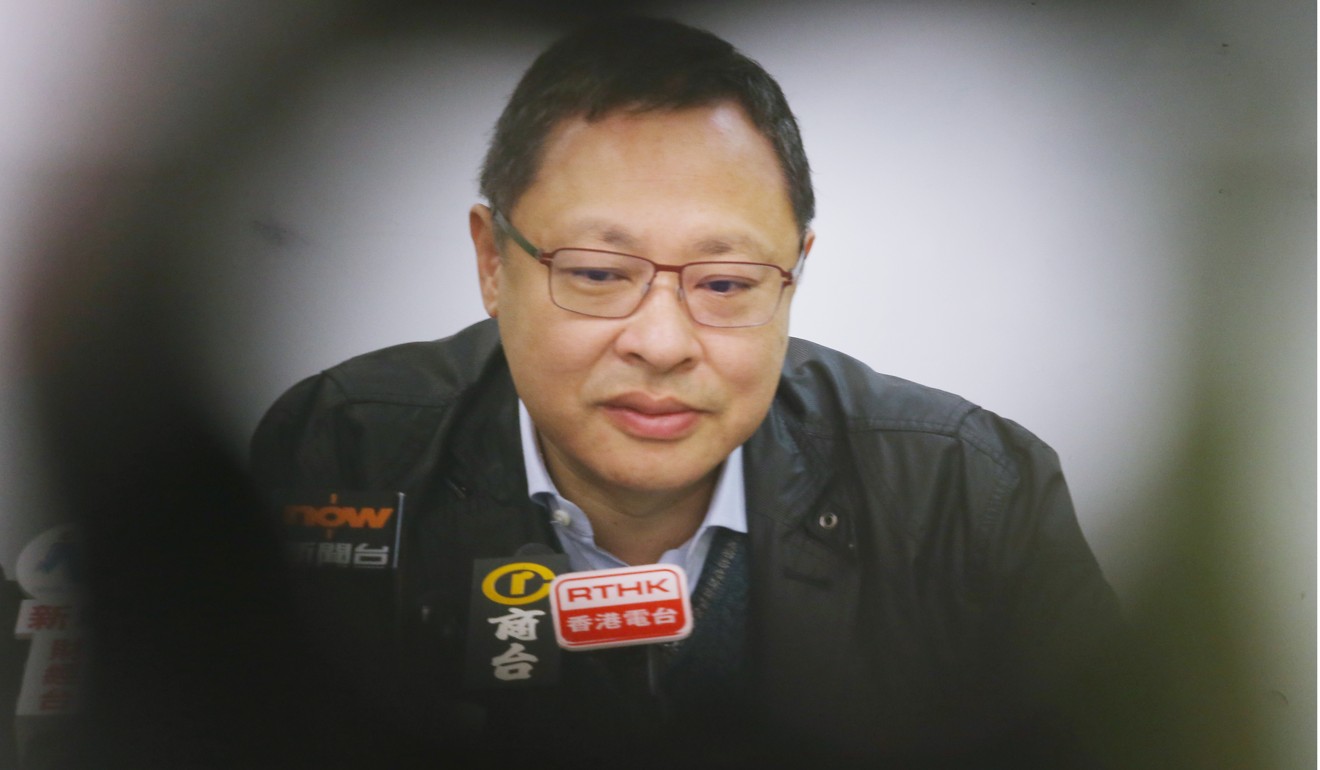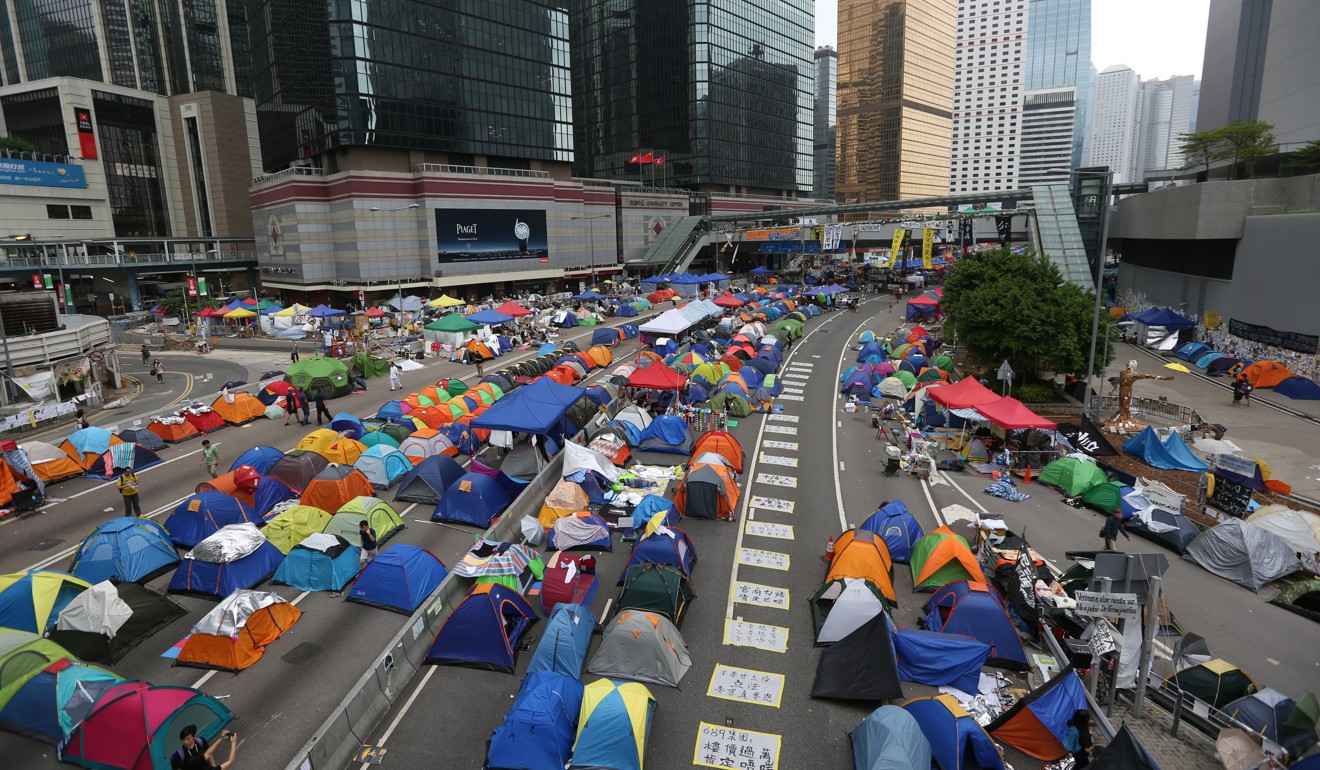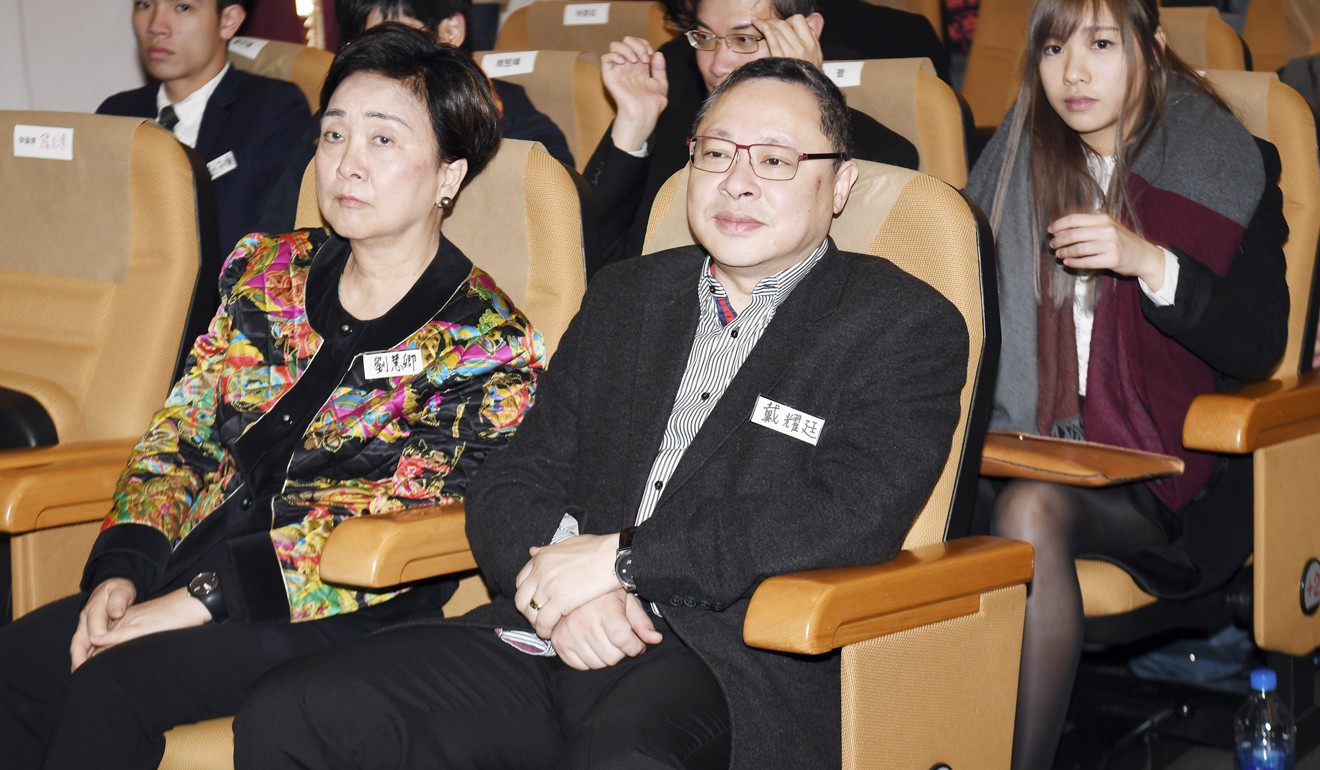
Independence comments from Hong Kong law academic Benny Tai earn sharp Beijing rebuke
City’s sole member of China’s top legislative body asks if Tai is still fit to teach at HKU, after offices representing the Chinese government in the city throw full weight behind previous condemnation by local authorities
Beijing’s two departments in charge of Hong Kong affairs on Saturday threw their full weight behind the Hong Kong government’s public rebuke of a liberal academic and key leader of the 2014 Occupy protests who said the city could consider becoming an independent state when China becomes “democratic”.
The State Council’s Hong Kong and Macau Affairs Office (HKMAO) and the central government’s liaison office in Hong Kong issued strongly worded comments to state news agency Xinhua condemning University of Hong Kong law professor Benny Tai Yiu-ting after he spoke out at an event organised by a pro-independence organisation in Taiwan.

A HKMAO spokesman said it believed a “small number of people in Hong Kong have colluded with external separatist forces” to advocate the city’s independence.
“They have fully exposed their attempts to split the country and violated the national constitution, the Hong Kong Basic Law, and the relevant laws in Hong Kong. They are challenging the bottom line of ‘one country, two systems’. Such activities must not be ignored or tolerated,” the spokesman said.
A liaison office spokesman said the “terrible acts” had seriously violated China’s constitution, Hong Kong’s mini-constitution – the Basic Law – and other laws in the city.
Hong Kong government ‘shocked’ by Occupy leader Benny Tai’s independence comments at Taiwan seminar
Both spokesmen added that they firmly approved of and supported any efforts by the Hong Kong government to “regulate” such acts by law, without further elaborating.
Tai, one of the organisers of the 2014 Occupy movement that led to 79 days of road blockades in the name of fighting for greater democracy, said on Facebook that he was concerned by the forcefulness of the HKMAO’s response.
“For this I am extremely shocked,” he said on Saturday evening.
He stressed that his comments were “not new” and were “imaginations of the future”, which in his opinion did not violate any criminal laws.
“But under Hong Kong’s authoritarian rule, [the comments] were suddenly said to have violated the Basic Law … That is extremely worrying, if Hong Kong is in a state in which [words] can be incriminating,” Tai said.
Occupy co-founder Benny Tai calls on Hongkongers to defy ‘sugar-coated authoritarianism’
The political storm stemmed from Tai’s remarks made earlier in the week at a seminar in Taipei organised by the Taiwan Youth Anti-Communist Corps. His words were subsequently widely reported – and condemned – by Beijing mouthpieces in Hong Kong several days in a row.
On Friday, a Hong Kong government spokesman said it was “shocked” that a HKU teaching staff member had said the city could consider becoming an independent state, adding that it “strongly condemns such remarks”.

On Saturday, Professor Lau Siu-kai, vice-chairman of the Chinese Association of Hong Kong and Macau Studies, a semi-official think tank, said Beijing was concerned that pro-independence forces in Hong Kong and Taiwan would band together.
Independence or self-determination: whatever you call it, it’s still separatism
“The central government is particularly worried that the United States could make use of Taiwan to balance China’s influence,” he said.

I will continue to promote democratic ideals in a peaceful manner and without fear
The official condemnation was a way to reduce the influence of Tai’s remarks and demonstrate the determination of both the Hong Kong and Beijing governments to safeguard national territory, he added.
Tai said he would continue to promote democratic ideals in a peaceful manner and without fear.
“I am a normal Hong Kong citizen with no official titles. I don’t belong to any political groups in or outside Hong Kong. I have always been alone – what I do and say, I bear all the responsibilities,” he said.
While HKU could not be reached for comment, the chairman of its governing council Arthur Li Kwok-cheung said Tai’s views were his own and did not represent those of the university. There was no obligation for the institution to react, he said on Sunday.
“If something is illegal then we will follow up, if it is not illegal then we do not have the authority to follow up.”
Xi Jinping warns China will crush ‘any attempt to separate an inch of territory of our great country’ in keynote speech
If he is now teaching Hong Kong independence, he will mislead more youths and push them to a dead end.
Pro-Beijing lawmaker Priscilla Leung Mei-fun, a City University law professor, said it would be “wise” for Tai to retract his comments and apologise.
Leung, however, conceded that no laws in Hong Kong could be used to sanction him, especially since his comments were made outside of the city.
Civic Party leader Alvin Yeung Ngok-kiu said the strong rebuke from authorities was aimed at “planting fear” in Hongkongers.
“Is he attempting to link Taiwan independence with Hong Kong independence? If he is now teaching Hong Kong independence, he will mislead more youths and push them to a dead end. Is it still appropriate for him to remain at HKU? I hope HKU will consider this,” Tam said on a TV programme.
“[Tai] claims this is about freedom of speech but this is not related to freedom of speech at all. He is saying things that will endanger the country and Hong Kong. If he is not criticised, then what he’s saying is being condoned.”
Hongkongers who lobby for end to ‘one-party dictatorship’ run risk of election disqualification, top Beijing delegate warns
While Lau a day earlier said he saw no reason for the city to expedite national security legislation because of Tai’s remarks, Tam disagreed and said Tai’s comments proved Hong Kong should urgently implement Article 23 of the Basic Law to criminalise a series of acts including sedition, treason and subversion.
Additional reporting by Kimmy Chung and Emily Tsang


